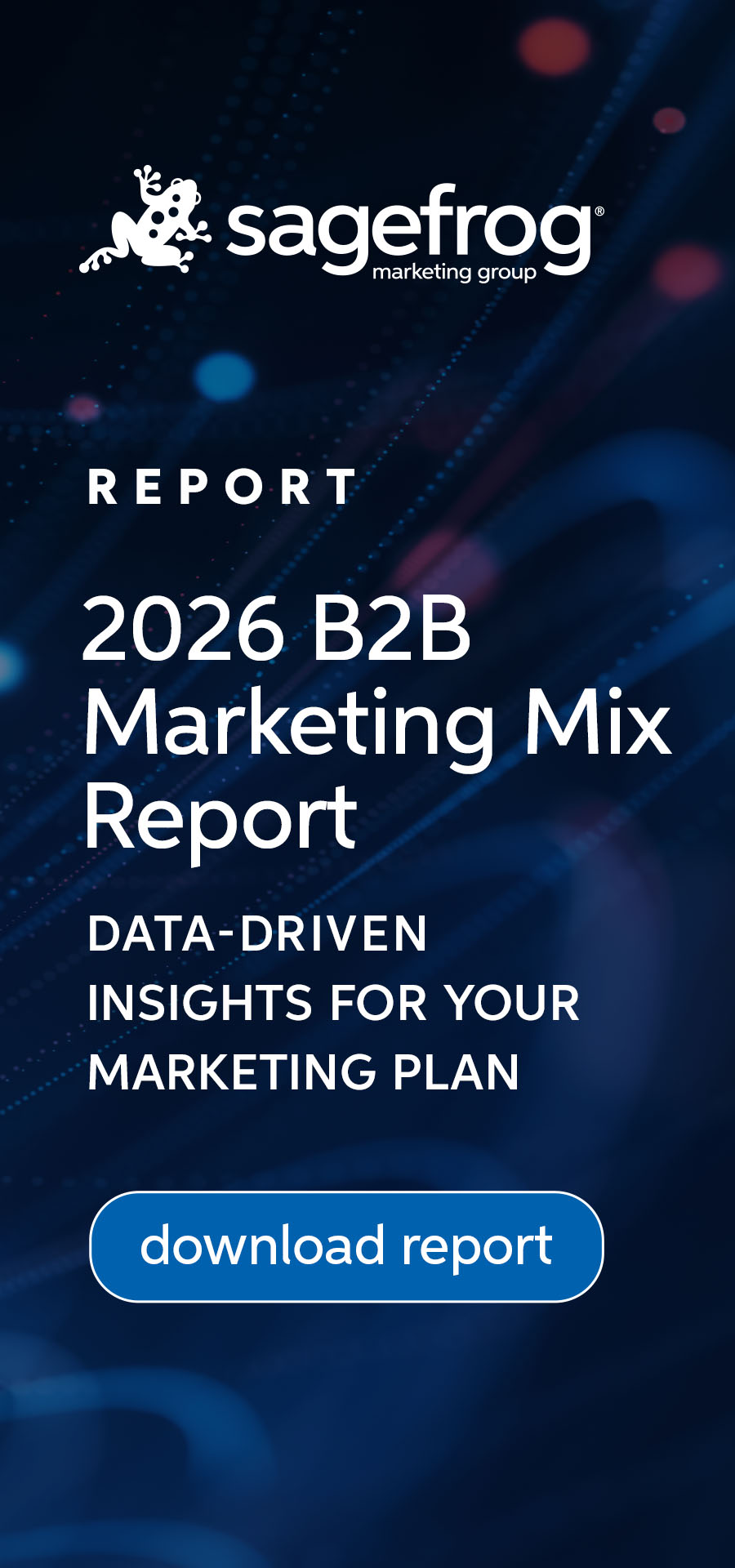B2B companies everywhere are facing unprecedented times. With so many questions floating around right now, marketing managers are being forced to ask: which tactics should stay, and which should go?
With tradeshows cancelled and face-to-face meetings temporarily halted, businesses are reevaluating their marketing plan, strategizing new lead sources, and reassigning spend. Marketing budgets that were previously allocated to industry events and travel are now being transferred to digital marketing.
Digital tactics, especially inbound channels, spanning webinars, organic and paid social media, content marketing, search engine optimization (SEO), and search engine marketing (SEM), will ramp up as B2B marketers take advantage of new levers to sustain traction in their business.
As you transition to a fully online strategy, consider how these digital marketing tactics will help you get your message to the right audience to keep leads in your pipeline.
Webinars & Online Events
Without industry events, tradeshows, and face-to-face meetings, your ability to connect with prospects and leads is hindered. However, in a handful of markets, audiences still need the products and services you provide. Just as companies, friends, and families are taking to video conferencing to host happy hours and spend virtual time together, you can connect with hundreds of prospects and leads through webinars and online events. Keep face-to-face meetings afloat with these webinar tips:
- Avoid a blatant selling message; be aware of the state of the world right now
- Your topic and content must be considered a helpful by your audiences, like sustaining revenue
- Make it short and succinct: 30 minutes is plenty of time
- Show your face over video to foster connection
- Use inbound digital channels to recruit for your virtual event, like email and LinkedIn InMail
- Archive your webinar for viewers who can’t make it
- Bring a client on the webinar as a live case study
Learn more about our event marketing services. Most traditional event marketing services can be adapted to online, virtual events.
Social Media Strategy
With 2.65 billion people on social media worldwide, it’s the most efficient channel for sharing information with the masses. Of course, with great reach comes responsibility, and marketers must revisit their social media strategy to ensure ethical and effective use that helps more than it hurts. Incorporate these tips into your social strategy:
- Practice social listening before social posting
- Moderate comments to remove misinformation
- Write posts in real time to provide accurate information
- Limit scheduling posts in advance to avoid misinformation
- Consider live streaming any big announcements
- Update open/close times or important information on your profiles
- Leverage paid social and programmatic advertising, including LinkedIn and Facebook advertising
Learn more about social media strategy and public relations.
Content Marketing & SEO
Content creators have an increased responsibility during this time. Content should always be accurate, timely, and helpful, but now it must also straddle a fine line of being compassionate without newsjacking. Newsjacking means you inject your ideas into a breaking news story to generate media coverage and leads. While, in most situations, this isn’t unethical but rather a solid content marketing strategy that can be beneficial to consumers and companies, in certain circumstances, it’s not okay. Adapt your content marketing and search engine optimization strategy with these tips:
- Scrutinize your content topics more than never
- Ask yourself: how will this help people today?
- Pay mind to the message and tone of your content
- Don’t just create content for the sake of it
- Avoid relating your products to world news if there’s not an obvious connection
- Conduct new keyword research to understand what information your audience is looking for today
Learn more about inbound marketing, including content marketing, search engine optimization, and search engine marketing.
Search Engine Marketing
B2B marketers who participate in industry events allocated nearly 40 percent of their budgets to exhibitions and industry shows, almost five times more than the 8% spent on online marketing, according to research by the Center for Exhibition Industry Research. With events being cancelled and marketing budgets being reallocated, marketers can invest more in SEM. While generating awareness and leads online has been an effective B2B marketing tactic for years, it’s more relevant than ever as people are glued to the internet for everything. Put these tips to work for your SEM strategy:
- Increase your budget on campaigns where you can meet demand
- Reevaluate device preferences; mobile usage from commuters may decrease
- Analyze your location data; this will change as travel stops temporarily
- Review your ad copy to ensure your message and tone are appropriate
- Set new KPIs and measurables to reflect the new landscape
Learn more about search engine marketing (SEM), including PPC and display advertising.
Make These Marketing Adjustments to Sustain Your Business
We can’t plan for unprecedented times like these, but we can adapt as events unfold. Consider all the marketing tactics your company is currently running and make small adjustments to accommodate for these temporary times. It’s important to stay top-of-mind to your audience—but only by being helpful, informative, and relevant.
At Sagefrog, a leading B2B marketing agency, our fully operational team is working remotely, helping our clients communicate with their stakeholders through strategy, website updates, blogs, content, emails, social media, digital marketing, and everything in between. If you need help adjusting your message and tactics, we’re available to help you deal with the disruption and sustain traction with responsive support and full-service marketing.
Download this B2B digital marketing tool to help you adjust your online strategy and tactics during this time.


